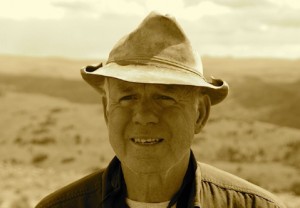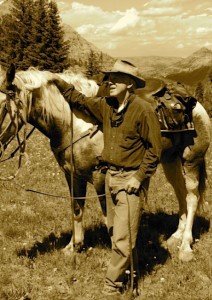“Save the parts,” my dad and grandfather used to say while I was growing up on our ranch. I recall many ranches and farms hoarding a respectable bone pile of motors, bolts, springs, axles and an interesting variety of metal parts.  I was surprised at how often we retrieved one of these relics to fix something or build a new of piece of equipment. This conservative habit was a practical and economic approach to meet the needs of daily ranch work.
I was surprised at how often we retrieved one of these relics to fix something or build a new of piece of equipment. This conservative habit was a practical and economic approach to meet the needs of daily ranch work.
Conserving landscapes, watersheds, and the critical elements of ecological systems is also an essential strategy to protect the health and economic wellbeing of our lives and communities. Like with the scrap pile, we should save even pieces that don’t have a clear purpose today, not let anything go to waste or get trashed, and ensure that when we need something down the road, we have it on hand. I have always believed that conservation is founded on conservative principles.
These principles include taking full responsibility for one’s action and resources. It means carefully and strategically budgeting our resources for the future—with full consideration of generations to come. We want  our children and grandchildren to have the freedom to choose options that we cherish. It’s stewarding our natural resources for the long pull.
our children and grandchildren to have the freedom to choose options that we cherish. It’s stewarding our natural resources for the long pull.
Environmental stewardship is simply good business. This is why the ranks of superb stewards include ranchers, farmers, timber operators, miners and a multitude of hunters and fishermen who are traditionally conservative. Wyoming citizens, who usually tilt conservative, place a high value on productive natural landscapes, healthy agricultural lands, open space, an abundant and diverse wildlife complex, and clean streams and clear air sheds. Wyoming has sound laws and programs to ensure land stewardship, site industrial complexes, provide responsible wildlife management, protect air and water, manage waste and hazardous materials, and even conserve royalties from mineral extraction for successive generations. These were forged and implemented with bipartisan leadership, and were all passed by conservative state legislatures.
Conservation is a tenet of a conservative philosophy. Just as tucking away old machinery parts and bailer tines is a way to make sure we’re not left in the lurch when a piece breaks unexpectedly, so does protecting our air, water, wildlife, and scenic vistas ensure our quality of life into the future. Conservation and conservatism pull in tandem like a team of good workhorses.
John Turner runs the Triangle X Ranch in Jackson Hole, chairs the Haub School Advisory Board, and is former director of the U.S. Fish and Wildlife Service.

